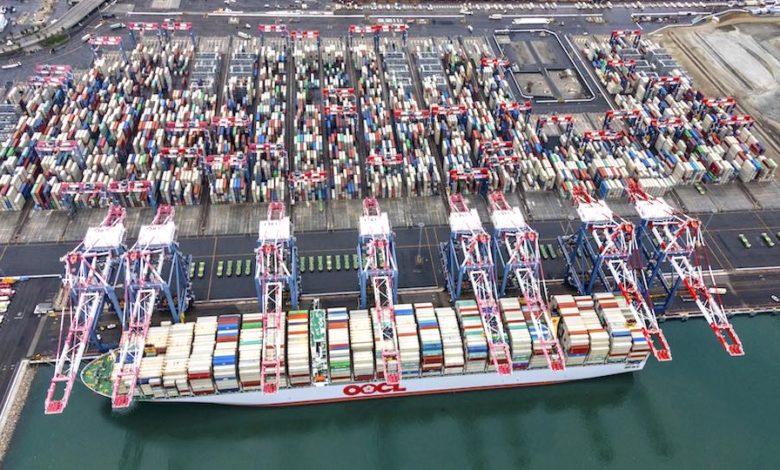Port of Long Beach joins the Green Shipping Corridor

The Port of Long Beach has signed on to the Shanghai-Los Angeles Green Shipping Corridor, a partnership of C40 Cities – a network of mayors of nearly 100 world-leading cities collaborating to confront the climate crisis – ports, shipping companies and cargo owners convened to create a zero-emissions trans-Pacific trade route.
First announced in January by C40 Cities, the ports of Shanghai and Los Angeles, and other key maritime stakeholders, the Shanghai-Los Angeles Green Shipping Corridor is looking to decarbonise shipping between the busiest ports in China and the US.
The partnership intends to work together to achieve these goals by developing an implementation plan by the end of 2022 that will include deliverables, goals and interim milestones, and roles for participants.
“Accelerating efforts to decarbonize the shipping sector is urgent if we are to limit global heating to 1.5 degrees Celsius,” said C40 Executive Director Mark Watts in a statement. “By convening a powerful coalition that includes the San Pedro Bay ports complex, the Port of Shanghai and key maritime industry stakeholders, we hope to be an important catalyst in decarbonising supply chains of all kinds around the world, while also creating a replicable model for other port cities to follow.”
Key decarbonisation goals for the Green Shipping Corridor partnership include the phasing in of low, ultra-low, and zero-carbon fueled ships through the 2020s, with the world’s first zero-carbon trans-Pacific container ships introduced by 2030 by qualified and willing shipping lines; the development of best management practices to help reduce emissions and improve efficiency for all ships using this international trade corridor; and reducing supply chain emissions from port operations, and improving air quality in the ports of Shanghai, Los Angeles and Long Beach and adjacent communities.
